Projects
Current Projects
ERA Chair in Sustainable Futures
2024-2029
Project team: Kai Pata, Anu Realo, Terje Väljataga, Grete Arro, Katrin Männik, Mari-Liis Jakobson, Leif Kalev, Jaanus Terasmaa,Tarmo Pikner
The project will combine high-level research with the development of innovative solutions to promote a sustainable mindset and practices. By integrating expertise from multiple disciplines and fostering international collaboration, the project also aims to enhance the university’s research excellence and capacity. The project stands out for its outstanding interdisciplinary team, which brings together experts from a wide range of fields in the social sciences and humanities. To enhance collaboration with various partners, including representatives from the public and private sectors, the project will adopt the Open Lab approach.
The project is funded by the European Commission's ERA Chair programme.

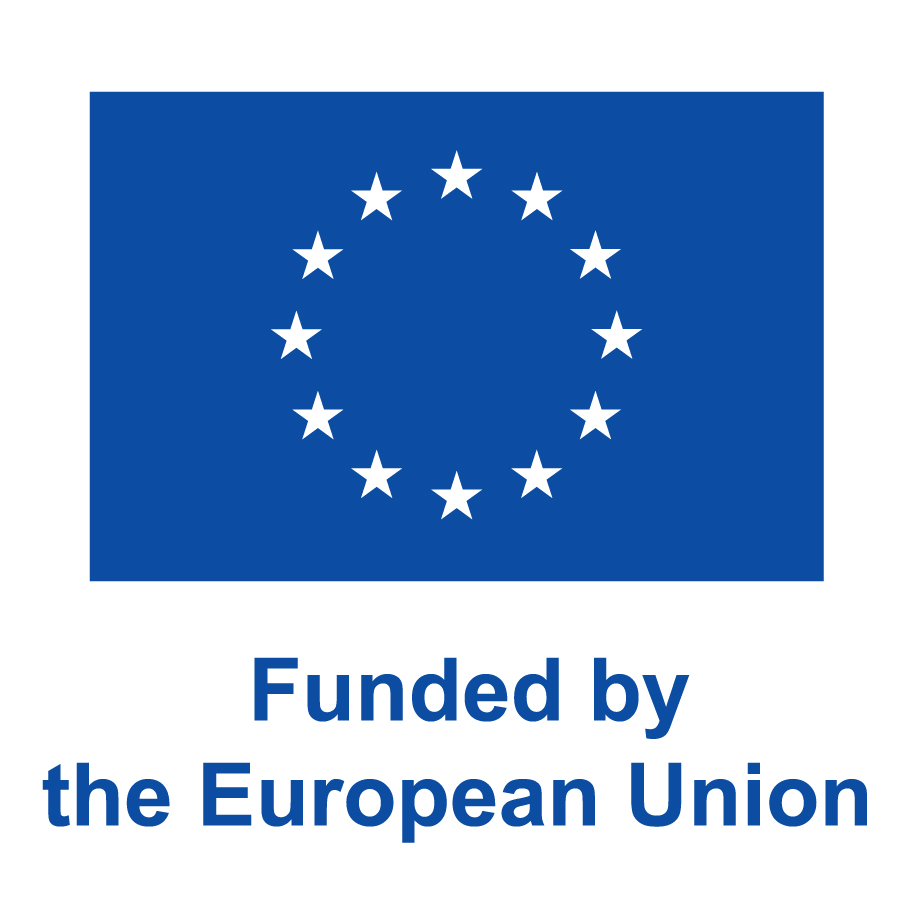
WISH -Bridging Work-Life and Primary Education: Integrating Work-Life Topics and Key Competencies into Teaching Practice
2025-2028
Project Team: Inge Timoštšuk, Kaidi Nurmik, Maile Käsper, Anne-Mai Näkk, Helene Uppin
The project focuses on supporting class teachers in integrating work-life-related topics and key competencies into the learning process. To this end, a handbook and five thematic learning modules will be developed and piloted in general education schools. In addition, an in-service training module will be created to enhance teachers’ competence in integrating work-life topics and key competencies. The project outcomes will enrich class teachers’ teaching practices and promote the dissemination of research-based approaches both locally and internationally. Project is funded by the European Commission.
The lead partner of the project is Tallinn University, and the four European universities participating as partners are Paderborn University (Germany), Masaryk University (Czech Republic), University of Helsinki (Finland), and Libera Università Maria SS. Assunta di Roma (LUMSA University) (Italy).
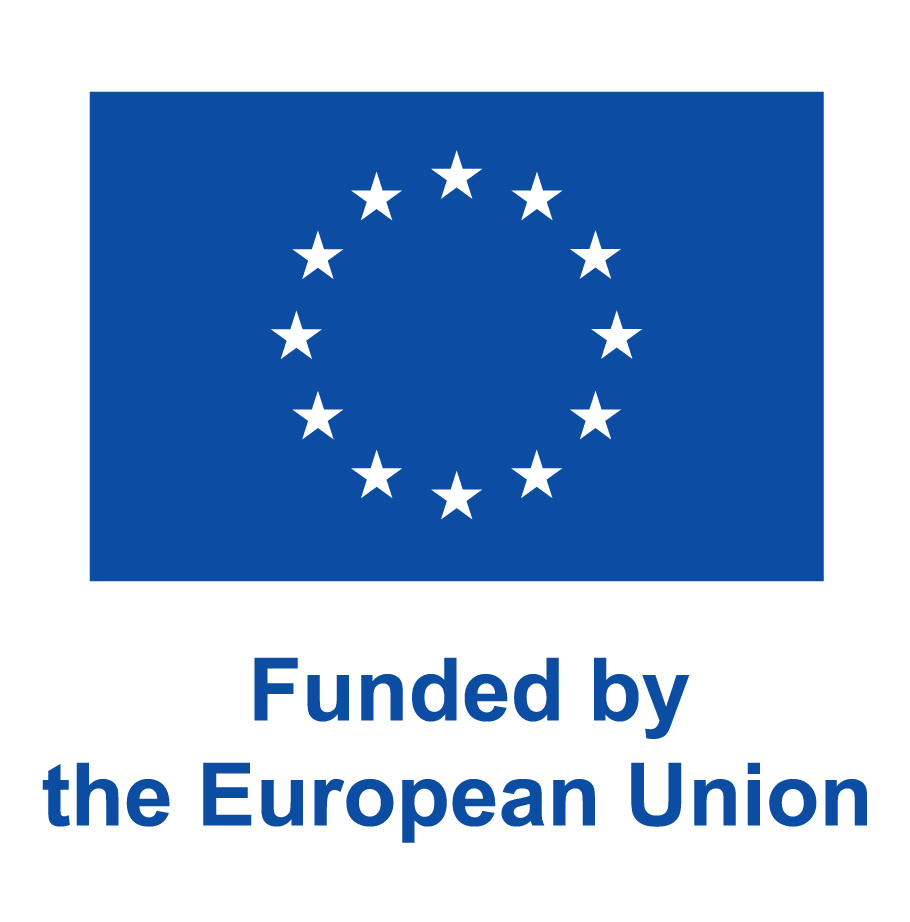
TAME - Teacher Academy for Maker Education
2025-2028
Project team: Janika Leoste, Sirly Väät, Kadri Mettis, Katrin Männik
The project will establish a Teacher Academy aimed at creating innovative teacher education programmes for Maker Education. Additionally, the project will develop the Maker Competency Framework, necessary learning modules, and resources, and deliver joint training courses. The project will include evaluative studies, identify effective practices, and deliver policy recommendations to inform education policy makers in the participating countries and at EU level.
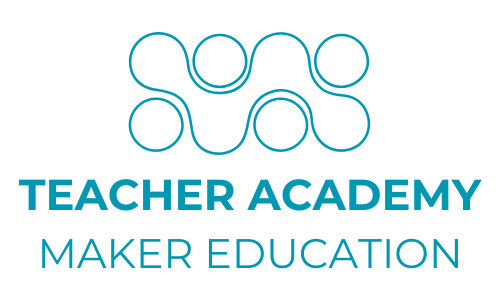

Financed by EUROPEAN EDUCATION AND CULTURE EXECUTIVE AGENCY (EACEA) - ERASMUS-EDU-2024-PEX-TEACH-ACA.
WINDEE - Well-being in Digital Education Ecosystem
2025-2028
Project team: Janika Leoste, Sirly Väät, Kadri Mettis, Katrin Männik
The well-being of students and educators in digital education is crucial. Our policy experimentation project addresses the lack of understanding, strategies, and coordinated policy efforts in this area. We build evidence, create solutions, and conduct experiments to refine and implement systemic policy changes.
The project begins with comprehensive evidence building through research, assessment, and policy mapping on digital well-being. We then develop Digital Well-being Framework, integrating:
a) Person-specific factors including digital competences and health considerations. b) Context-specific factors involving educational environment, learning design and school culture. c) Device-specific factors pertaining to the types of digital devices and best practices for safe and balanced use.
The Digital Well-being Framework provides principles for responsible technology use and strategies for creating balanced digital learning environments. It includes practical recommendations for selecting technological solutions well-suited for learning design.
We test the Digital Well-being Framework through experimentation in real-world educational settings. This iterative process refines our strategies, ensuring they are effective and relevant.
Ultimately, we influence educational policies at regional, national, and European levels. By creating evidence-based policy recommendations and fostering systemic change, we strive to embed digital well-being into every classroom.
A strong partnership of universities, schools, policymakers, networks, and EdTech experts, enhances the project's capacity to address the complex challenges of digital well-being in education.


Funded by EUROPEAN EDUCATION AND CULTURE EXECUTIVE AGENCY (EACEA).
LED Education - Supporting Learning Environments in Digital Education
2025-2028
Project team: Janika Leoste, Sirly Väät, Kadri Mettis
The LED Education project aims to address the challenges of the global transformation of education by creating enabling digital learning environments that increase learner engagement, well-being and educational outcomes. The project aims to integrate advanced digital tools, personalised mentoring and inclusive practices to ensure a more equitable and effective learning experience. Unlike traditional digital learning, the project team will provide a safe space/environment that supports the learning process and the teaching staff. This project directly supports the competition's focus on innovative digital education solutions. LED Education proposes to improve the digital education ecosystem and bridge the digital competence gap identified in EU strategic policies. By incorporating inclusive digital tools and methods, the project is aligned with the EU's broader goals of making digital education accessible to all, thereby supporting cross-sectoral digital skills development.


Funded by EUROPEAN EDUCATION AND CULTURE EXECUTIVE AGENCY (EACEA).
APEL-WB - Accreditation of Prior Experiential Learning Capacity-Building in the Western Balkans
2025-2028
Project Team: Mari-Liis Lind, Tiia Õun, Katerina Chikhran
The APEL-WB project supports the development of systems for the Accreditation of Prior Experiential Learning (APEL) in higher education institutions across the Western Balkans. The aim is to establish an effective and institutionalized framework that enables the assessment and accreditation of knowledge and skills acquired through prior experience and non-formal learning, in line with the standards of the European Higher Education Area.
The project develops guidelines and training programs for academic and administrative staff of universities, as well as for quality assurance agencies and ministries of education. Through these actions, it promotes lifelong learning, improves workforce qualifications, and enhances equitable access to higher education, contributing to social inclusion and the development of a knowledge-based economy.
The lead partner of the project is Logos University College (Albania), with participating universities and educational institutions from Albania, Kosovo, Bosnia and Herzegovina, Iceland, and Greece.
The project is funded by the European Education and Culture Executive Agency (EACEA) under the Erasmus+ programme (ERASMUS-EDU-2025-CBHE-STRAND-3).
Call for expert - Vacancy announcement:
External Quality Evaluation Expert in Accreditation of Prior Experiential Learning
Procurement of website design and development services
Learning and teaching in inclusive classrooms
2024-2027
Project team: Piret Soodla, Anna-Liisa Jõgi, Triin Ulla, Maris Juhkam, Eliis Ait, Tiiu Tammemäe, Katrin Poom-Valickis, Brenda Marie Morton
Learning and teaching in inclusive classrooms One of the leading principles of the Estonian education system is inclusive education. However, its implementation in schools remains a significant challenge due to the lack of knowledge about effective evidence-based teaching practices in classrooms with students of varying abilities and skill levels. This study aims to understand the current situation with the implementation of inclusive practices in the first stage of Estonian schools (i.e., grades 1-3), support the development of teachers' and support specialists' competencies in applying inclusive practices to support all students, and assess the impact of the professional development program on teaching and learning in inclusive classrooms. This study includes teachers, support specialists, and students. First, teachers and support specialists' implementation of inclusive practices, their self-efficacy, and professional development needs are analyzed. A professional development program will be developed based on the identified needs and based on the results and previous research findings. Third-grade teachers and support specialists will be invited to participate in the program. Teachers will implement inclusive intervention activities in their classes, in collaboration with support specialists, if needed. Program assessment will include quantitative and qualitative methods to evaluate teachers' and support specialists' learning experiences, the program's impact on their self-efficacy and the use of inclusive practices, and the impact of the intervention on students' perceived inclusion, academic skills, and self-efficacy. The project is of high practical value for the Estonian education system as it addresses a significant development area. Findings f Program assessment will include quantitative and qualitative methods to evaluate teachers' and support specialists' learning experiences, the program's impact on their self-efficacy and the use of inclusive practices, and the impact of the intervention on students' perceived inclusion, academic skills, and self-efficacy. The project is of high practical value for the Estonian education system as it addresses a significant development area. Findings from this project will inform pre-service and in-service teacher training programs at Tallinn University and the University of Tartu.
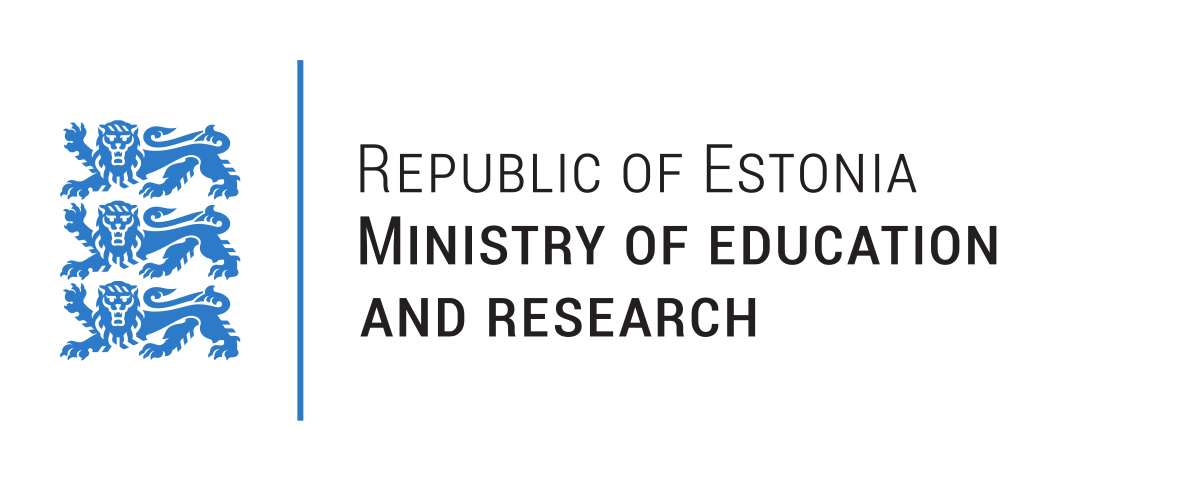
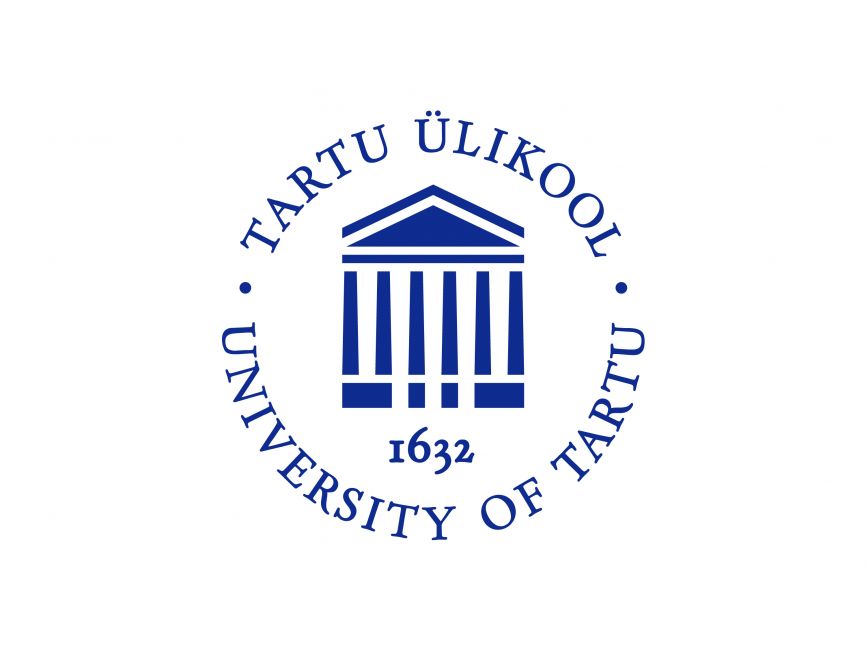
Strengthening Excellence in Interdisciplinary Sustainability Research at Tallinn University
2025-2027 Project Team: Kai Pata, Siret Talve
Project aims to enhance the university’s research and teaching capacity in the field of sustainability. A distinguished expert with an engineering background will be recruited to support the development and piloting of a micro-degree program in circular bioeconomy, the creation of a regional circular bioeconomy roadmap, and the establishment of an Open Sustainability Lab at Tallinn University. The project strengthens interdisciplinary research collaboration, supports local governments and enterprises in advancing the green transition, and helps train a new generation of specialists capable of applying science-based solutions at both national and international levels.
Fostering Scientific Habits of Mind and Systems Thinking in Secondary School Science EducationSupported by Teachers' Enhanced Teaching and Assessment Competence
2024-2027
Project team: Tiina Anspal, Terje Väljataga, Heli Aomets, Grete Arro, Kadri Mettis
Objectives:
- Develop theoretically sound instruments for researching the scientific habits of mind andsystems thinking in students at the III and IV school levels, as well as teachers' knowledge ofsystems thinking.
- Create digital core concept maps along with corresponding learning scenarios, which would helpshape students' systems thinking, scientific habits of mind, and autonomous motivation, andinvestigate the impact of the intervention on students' respective characteristics.
- Enhance science teachers’ competence through training, which will be examined throughchanges in teacher beliefs and knowledge.


Professional development oriented evaluation of teachers’ professional competence
2024-2027
Project team: Katrin Poom-Valickis, Priit Reiska, Tiina Anspal, Reili Argus, Tiina Rüütmaa, Kadi Georg, Annika Volt, Kristiina Bernhardt, Kati Aus, Jüri Kurvits, Tiina Naissoo, Marina Kurvits
In recent years, the proportion of teachers without the required qualifications in general education schools in Estonia has increased, reaching approximately one-fifth. However, it is still being determined why their proportion is growing and what suitable solutions exist through flexible learning to increase the percentage of qualified teachers. This research project focuses on two questions: firstly, understanding the factors that hinder unqualified teachers in Estonia from acquiring qualifications, and secondly, developing a methodology for the analysis and assessment of teachers' professional competencies that support professional development. Firstly, a nationwide survey will be conducted among unqualified teachers. Secondly, the factors hindering qualification acquisition will be specified through interviews in two municipalities, focusing not only on teachers but also on school leaders and leaders of the municipality education department. To address the second question, a methodology suitable for analysing and assessing teachers’ professional competencies will be developed, allowing for the identification of their professional development needs. Overall, the study is considered design-based research of two cases focusing on two municipalities - Tartu City and Harku Municipality - in the development process. The study provides input for universities to offer flexible teacher education through continuing education, micro-credential programs, and in-service education to help teachers achieve qualifications. On the other hand, it raises awareness of municipalities’ and school leaders’ roles and possibilities in creating conditions and supporting teachers’ professional development.


Development of assessment of general competences
2024-2029
Project team: Valeri Murnikov, Eve Kikas, Maris Juhkam, Elina Malleus-Kotšegarov, Piret Soodla, Mikk Granström, Kati Aus, Kaja Mädamürk, Joosep Norma.
Tallinn University and the Ministry of Education and Research are jointly implementing a project focused on the research-based development of curricula and educational resources, as well as the evaluation of educational quality. The project emphasizes the development of personalized learning pathways and learning analytics. The goal of the project is to improve the quality of the Estonian education system and to support the growth and development of future teachers.

Developing an e-handbook for supporting teaching Estonian language to children whose mother tongue is different from Estonian
2024-2025
Project team: Anne-Mai Meesak, Eve Kikas, Tiiu Tammemäe, Reili Argus, Andra Kütt-Leedis, Natalia Tšuikina
The transition to Estonian-language education in early childhood education creates a need to support both teachers and children. The new e-handbook aims to support the teaching of Estonian to children whose mother tongue is not Estonian. The e-handbook provides a comprehensive overview of child development and learning (including the acquisition of first and second languages), offers a diverse range of methods for learning and teaching Estonian as a second language, provides guidance for adapting and creating educational materials, and supports collaboration with parents and valuing different home languages. The e-handbook offers theoretical bases and recommendations for using practical materials across all topics. The e-handbook is available for free as a whole and by individual chapters.

Professional Development of Youth Workers: learning, researching, communicating values and theories influencing practice with diverse groups
2024-2027
Project team: Ilona-Evelin Rannala, Kristi Jüristo, Katrin Karu
The overarching goal of this project is to enhance the professionalism of youth work practitioners in addressing the needs of diverse youth groups. We foster collaboration between educators and practitioners, facilitate the integration of theoretical knowledge with practical application, empower youth workers to develop innovative approaches and activities, promote evidence-based practices in youth work and this strengthen the quality and recognition of youth work.
GEMS - Girls’ Empowerment In Digital Skills
2025-2028
Project Team: Kai Pata
GEMS – Girls’ Empowerment in Digital Skills is an international Erasmus+ cooperation project aimed at strengthening girls’ and young women’s digital competences and supporting their active participation in the digital society and labour market. Universities and training organisations from seven European countries collaborate to develop innovative training programmes, educational materials, and communication strategies. The project places a strong emphasis on creative activities and the production of new outputs (e.g., digital learning modules, guidelines, and communication platforms) to provide high-quality and inclusive learning opportunities. Coordinator is Italy and project is funded by the European Commission.
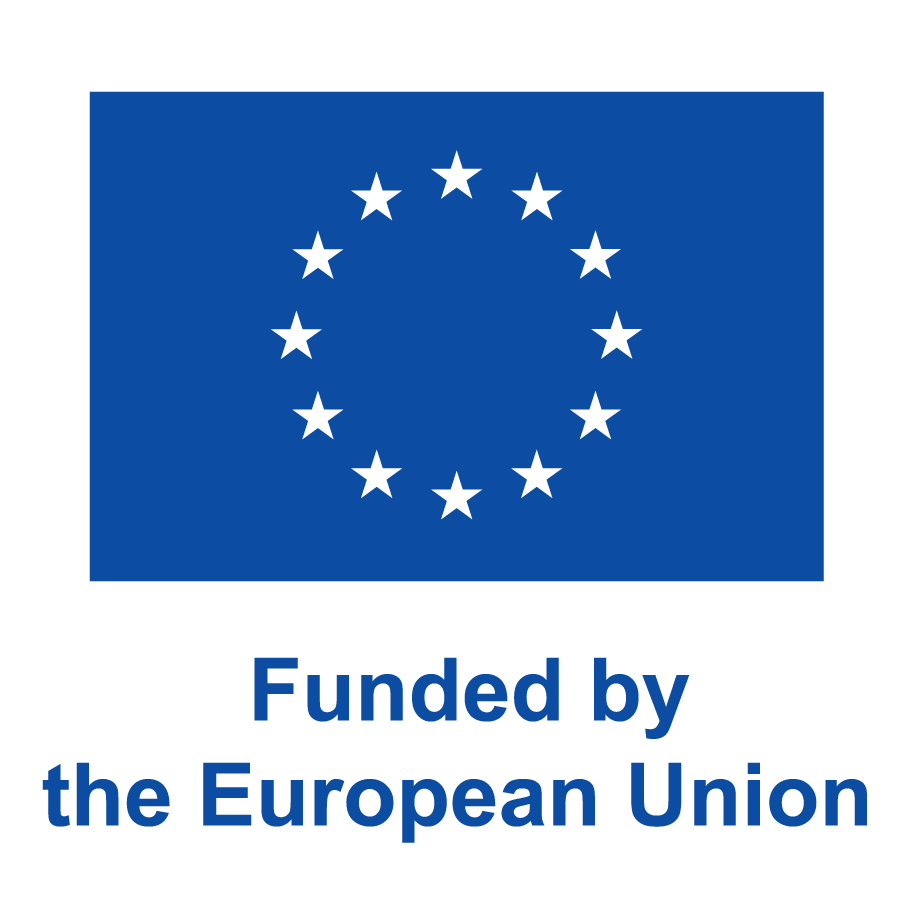
FEWL - Enhancing Research on the Integration of Formal Educational Programmes and Workplace Learning
2023-2025
Project team: Inge Timoštšuk, Krista Loogma, Maria Erss, Reeli Liivik, Janika Leoste, Kaidi Nurmik, Maret Aasa, Triin Roosalu, Merle Pajus, Anne-Mai Näkk, Helene Uppin, Erle Neeme, Marti Taru
The Twinning project aims to enhance excellenceand research potential in the field of researchon integratingformal education andworkplace learning (WPL) for students in basic and secondary schools. Facilitating multifaceted capacity building at the School of Educational Sciences (SES) at Tallinn University (TLU)in this field will be achieved through partnership: Finnish Institute for Educational Research at the University of Jyväskylä, and Institute of Educational Sciences at Paderborn University.


This project has received funding from the European Union’s Horizon Europe research and
innovation programme under grant agreement N°101079237.
EdTech Talents
2023-2027
Project team: Janika Leoste, Maire Tuul, Martin Sillaots, Aija Sakova, Sirje Virkus, Mart Laanpere, Kristjan Kask, Madis Saluveer, Kadri Mettis, Sirly Väät, Katrin Männik, Merle Pajus.
Emerging digital education technologies & supporting academia-business collaboration, specifically increasing the capability of researchers and research institutions in EU Widening countries to create spin-off enterprise.

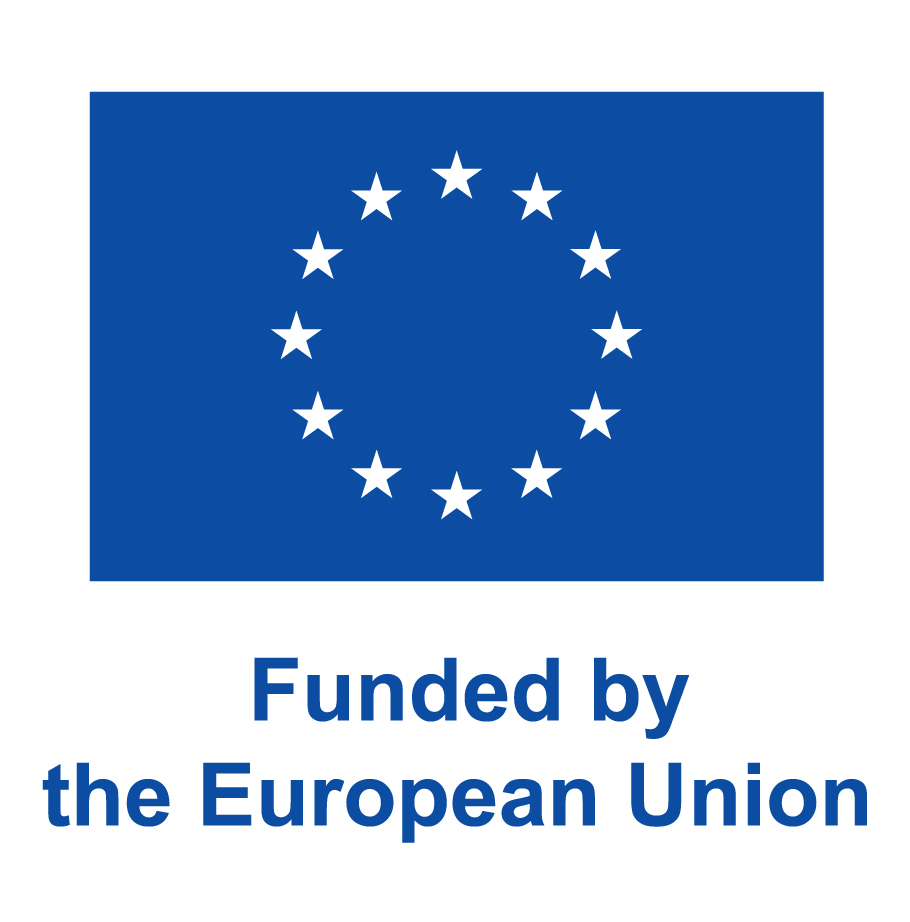
This project has received funding from the European Union’s Horizon Europe research and
innovation programme.
GOT - Building Capacity for Online Tuition in Ghana
2023-2025
Project team: Terje Väljataga, Kadri Mettis, Linda Helene Sillat, James Sunnay Quaicoe
There is opportunity to change course digital delivery in higher education institutions in Ghana and build sustainable digital learning policy in sub-Saharan Africa. Scaling up digital education delivery calls for strategic planning and development of existing and innovative pedagogical methods specific to digital delivery. The project will result in the development of an educational research based action plan, which will include the development of the delivery system and training.
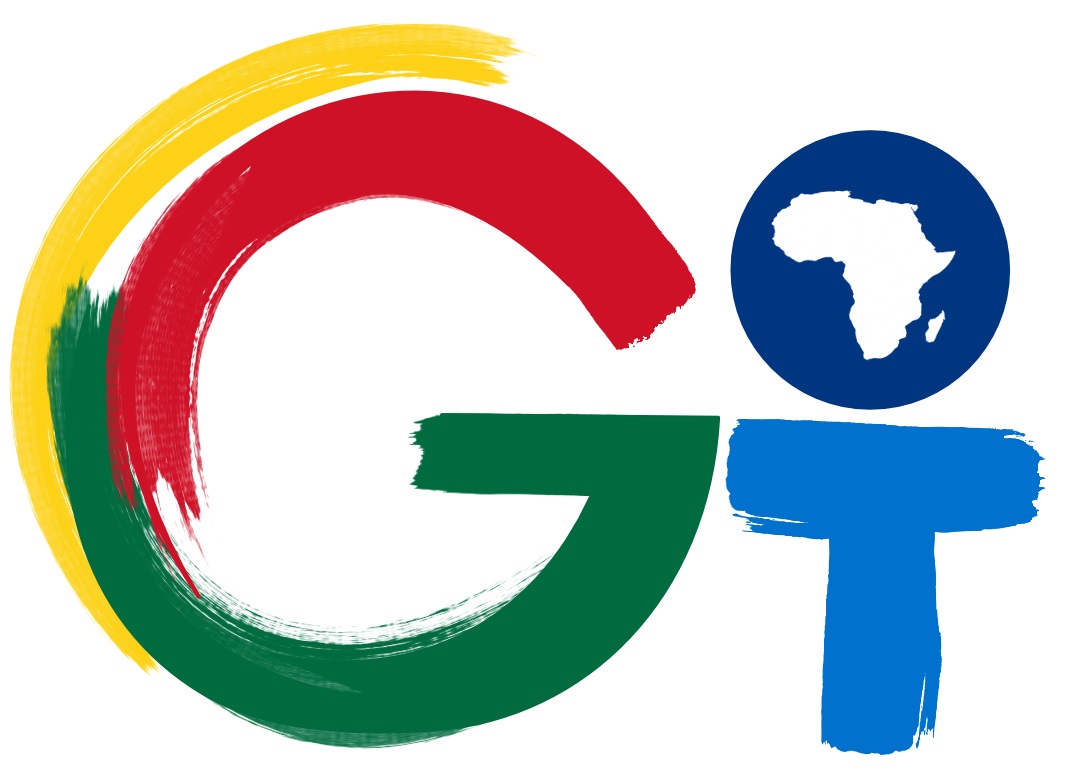
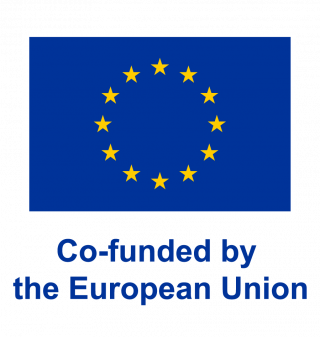
Funded by European Commission Erasmus "Capacity building in the field of higher education".
Strengthening the monitoring and analysis system in the field of youth work
2025-2029
Project team: Ilona-Evelyn Rannala, Kristi Jüristo, Tanja Dibou
Iinternational cooperation in researching youth and youth work is developed, and an updated version of the book "How to Study Youth and Youth Work" is published and introduced, which includes a modern view of the methodology of researching youth and youth work.
Digital cultural heritage as a resource for social development
2024-2026
Project team: Pille Runnel, Pille Pruulmann-Vengerfeldt, Kai Pata, Agnes Aljas, Mahendra Mahey
A significant part of museum collections is digitally available to Estonian people. It is an invaluable social resource with great potential to contribute to sustainable development. The rapid social, economic and technological development leads to polarization and a sense of discontinuity, but heritage can help people cope with change. Museums help to cope with transition when their resources find application in society. The task of the research work is to develop the capacity of various target and stakeholder groups (creative sector, citizen science activists, senior citizens) and museums in the use of digital cultural heritage. The goal of the project is to develop methods of co-creation for understanding digital cultural heritage, using it in various fields and transferring knowledge related to heritage. The output of the project is at least three experimental applications of digital heritage created collaboratively and a methodological toolbox for empowering digital co-creation.
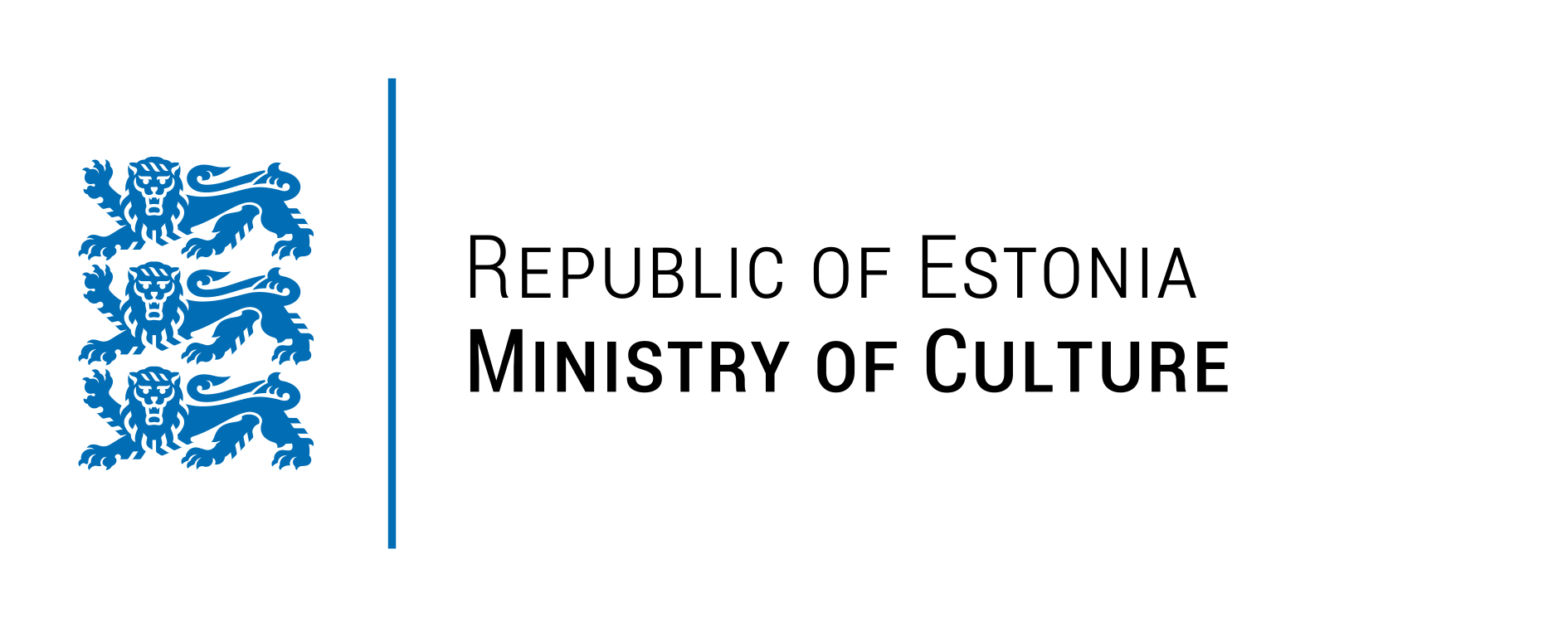
Funded by the Ministry of Culture.
Supporting Ukraine through citizen engagement at Baltic Universities
2023-2025
Project team: Lianne Teder, Kai Pata, Larissa Jõgi, Triin Roosalu, Daniele Monticelli
Analysis, design, implementation and assessment of citizen engagement actions within and beyond Baltic HEIs. Stimulating innovative educational practice and staff upskilling at Baltic HEIs through cross-cultural intercomprehension, tolerance, citizen engagement, business-academia cooperation. General objective of the Baltics4UA project is to Enhance Baltic universities’ social responsibility through civic engagement actions to address Ukrainian humanitarian crisis in the Baltics.
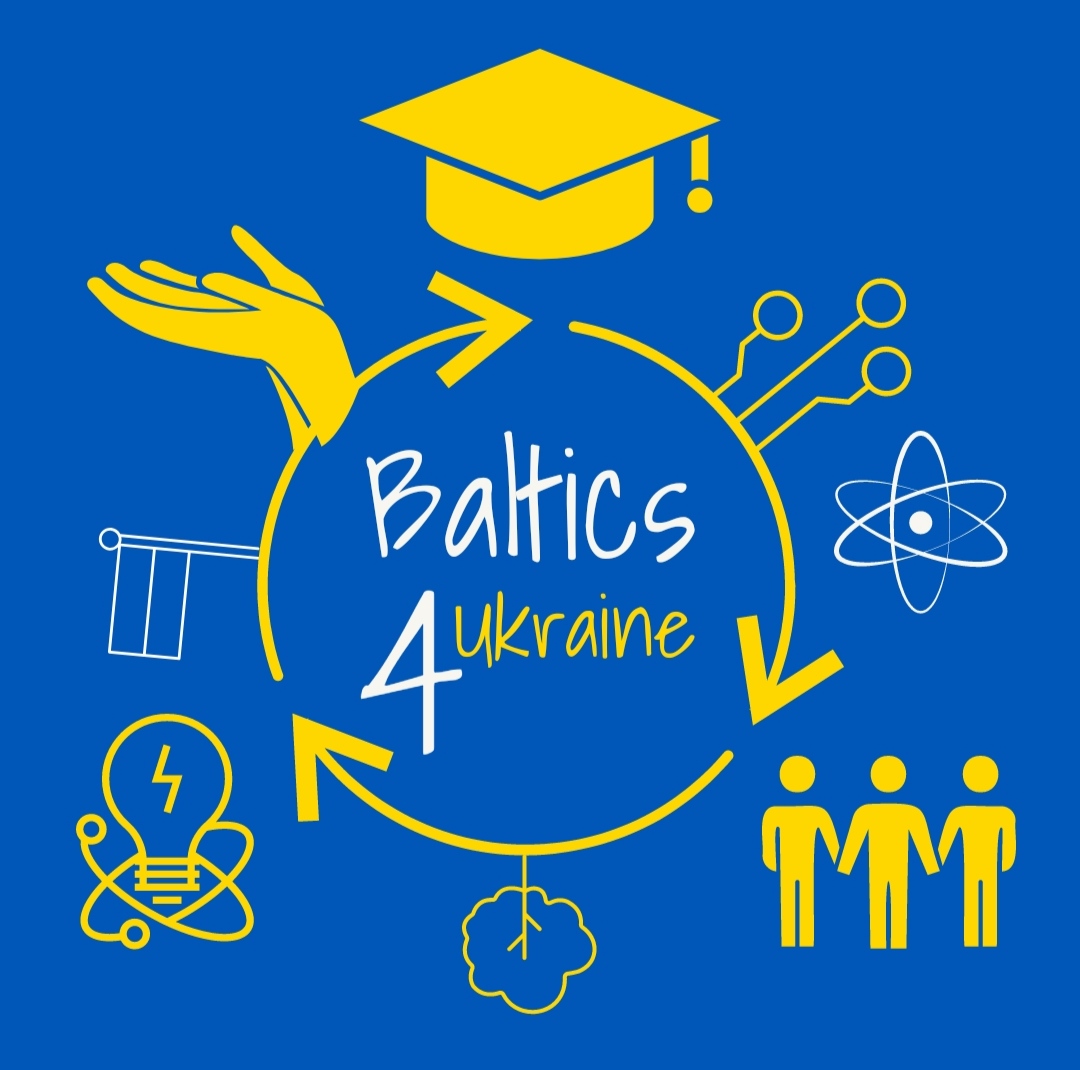
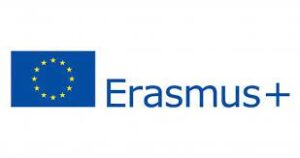
Funded by Erasmus+ Cooperation partnerships in higher education (KA220-HED).
Improvement support for educational institutions
2022-2029
Project team: Krista Keedus. Eve Eisenschmidt, Kätlin Vanari, Piret Oppi, Berit Silvia Kondratjev, Joosep Norma
TLÜ works in cooperation with HAKA on a development program of up to three years, which promotes a learner-centered culture and evidence-based management. Within the framework of the project, criteria and principles for the selection of educational institutions participating in the development program will also be developed for the involvement of the head of the educational institution participating in the development program.
Funded by Education and Youth Board.
Leading an Educational Institution as a Novice Headmaster
2024
Project team: Eve Eisenschmidt, Reet Sillavee, Kätlin Vanari, Daniel Reinaru, Riina Stahl
The education sector strategy stipulates that by 2035, curricula will increasingly support learner-centered approaches; the volume and content of education will be better aligned with the development needs of society and the labor market. Curriculum development and implementation are evidence-based and inclusive. In other words, the focus of school leaders and leading educators must further shift towards leading learning. The competency model and career model for educational institution leaders necessitate continuous self-analysis, development goal-setting based on it, and the selection of realistic strategies to achieve objectives. Therefore, there is a need to emphasize data utilization and evidence-based decision-making skills in the preparation of novice leaders. The program is targeted at school leaders with up to two years of tenure.

Funded by the Ministry of Education and Research.
Biodegradable Packaging Materials Advancing Circularity, Sustainability & Eco-Innovation
2025-2029
Project team: Katrin Männik, Triin Roosalu, Terje Väljataga, Kai Pata, Kadri Mettis, Maaris Raudsepp
The project BioPackMan aims to develop and validate innovative biodegradable packaging materials that promote circularity, sustainability, and eco-innovation. It focuses on designing novel formulations based on polyhydroxyalkanoates (PHAs), poly(butylene succinate) (PBS/PBSA), and polylactic acid (PLA) to create recyclable and biodegradable packaging solutions for applications in food, home care, and personal hygiene sectors. A complete value chain will be established—from material producers to end users—engaging industrial and research partners. The development process will assess environmental impacts, safety, and circularity across the entire lifecycle.
Funded by EUROPEAN HEALTH AND DIGITAL EXECUTIVE AGENCY.
Developing green skills horizontally: Phase I and Phase II
2023-2024
Project team: Katrin Männik, Maarja Lehtsaar, Grete Arro, Jaanus Terasmaa, Kai Pata
Developing green skills horizontally is implemented within the Green Skills Programme led by the Education and Youth Board and the Ministry of Education and Research. The programme is to support the development of business skills on green transition, which include general skills but also field-specific green skills. The 9th consortia of the programme “Developing green skills horizontally” focuses on: the concept development, analysis and development of curricula, university teacher training on green skills. The approach follows the comprehensive view on green skills including knowledge, attitudes and skills.
The second phase of the project focuses on developing digital and universally accessible learning materials aimed at fostering green skills across various levels of education and continuing training. The materials cover key topics such as sustainability, circular economy, and environmental management. They are being developed by several Estonian universities and vocational schools in cooperation with the Education and Youth Board (Harno) and other partners. The courses will be delivered in the MOOC format and made freely available to everyone. The goal is to support the green transition of enterprises and society through education.


Funded by the Ministry of Education and Research.
Research Partnership of Ministries for Achieving EU 2030 Climate Targets II
2024-2026
Project team: Katrin Männik, Grete Arro, Jaanus Terasmaa, Kai Pata, Indrek Saar, Tarmo Pikner, Arko Olesk, Anastassia Zabrodskaja, Tauri Tuvikene, Rando Tuvikene, Katri-Liis Lepik, Bianka Plüschke-Altof
The aim of the framework agreement is to establish a strong and flexible partnership between ministries and research consortia, supporting the achievement of Estonia's climate goals through knowledge-based policymaking. The framework agreement enables the integration of scientific expertise and analysis into policymaking, providing a comprehensive and thoughtful approach to climate issues. The partnership allows for flexible and needs-based resolution of analytical questions and the development of new approaches and knowledge.
Funded by the Ministry of Finance.
MESHE - Micro-credentials Exchange System for Higher Education in Europe
2026-2028
Project Team: Katrin Männik, Kai Pata, Terje Väljataga
The MESHE project (Mental and Emotional Support for Higher Education) develops innovative solutions to support the mental health and well-being of students and academic staff. Its focus is on a systematic approach to mental and emotional well-being in higher education, providing tools, resources, and methodologies that help prevent burnout and foster both learning and teaching.
As a result of the project, a unified European framework will be created, enabling higher education institutions to systematically support the mental and emotional well-being of learners and staff by offering practical tools, training materials, and a collaborative network. Project is funded by the European Commission.

A SELECTION OF PRIOR PROJECTS (2020-2025)
A selection of prior projects
| ETIS |
Project team |
||
|
e-DIPLOMA - Electronic, Didactic and Innovative Platform for Learning based On Multimedia Assets Duration: 2022-2025
Funded by Horizon Europe Programme (HORIZON-CL2-2021-TRANSFORMATIONS-01). |
TKA22070 | Kai PataTerje VäljatagaAndrea AnnusMairi MatrovHalliki PõldaKatrin Karu | |
Preparation and implementation of the National Defence Education Development Program 2024/25 The project encompasses the development (including research) of the micro-degree curriculum in national defence education and the sustainable training of national defence educators at Tallinn University, based on the content of the optional course "National Defence Education" in the national curriculum for upper secondary schools. Research activities focus on the formation of national defence educators' understanding of the nature of teaching and their comprehension of roles in teaching national defence education in general and vocational education. |
MÕA24038A | Maret Aasa, Meidi Sirk | 2024-2025 |
EdTech Hackathon The tender will be organised in view of establishing a service contract for further developing and scaling up the Digital Education Hackathon; managing, expanding and engaging its community; supporting the dissemination and implementation of valuable solutions; linking the initiative with the Digital Education Hub. Funded by European Commission. |
TKA22216A | Janika Leoste,Kristof FenyvesiSirje Virkus, Katrin Männik,Sirly Väät | |
Academy4Business Academy for Business project partners are motivated to co-design a cross-border blended digital course for academy and business to boost the entrepreneurial and scientific mind-sets for future entrepreneurs and knowledge workers in EdTech. This capacity-building project aims at reducing the cap between the academic and business worlds by reciprocal knowledge transfer between the academic and business sectors. The students and professors are supported to acquire an entrepreneurial mind-set while the business sector actors are introduced to use the evidence- and science-based approaches in their business. Funded by European Commission Erasmus (2022-2-EE01-KA220-HED-000100644). |
TKA23009 | Janika LeosteSirly Väät, Meidi Sirk, Katrin MännikSirje Rekkor | 2023-2025 |
WINnovators - Boosting entrepreneurial and STEM/STEAM capacity of young Women in higher education institutions for sustainable development and INnovation Increasing entrepreneurship and STEM / STEAM capacity in higher education, focusing on sustainable and innovative development. Particular attention will be given to promoting gender equality and addressing differences in relation to the access and use by underpresented groups. Target groups are: HEI educators and students from future educators in HEIs disciplines; young underprivileged women between 18 and 30 years old, from rural communities, or outskirts; innovation and entrepreneurship organisations and HEIs with digital, STEM/STEAM and sustainability competences and with associated partnership with STEM/STEAM tech SMEs. |
TKA21193 | Kai PataTerje VäljatagaIlona-Evelin RannalaKristi Jüristo | 2021-2024 |
|
Discovery trail - Systematic use of digital outdoor learning tool The partners of the "Discovery Trail" project from Estonia, Finland, Greece and Austria bring together the fields of education, psychology, ecology and educational technology and explore the possibilities of using the digital solution of the Discovery Trail in nature education. In the course of the project, we will translate the Discovery Path application into different languages, develop technical solutions (to be more user-friendly), and introduce the application and paths created with local and international training to teachers and nature education centers in the participating countries. In addition, multilingual examples will be developed in the field of biodiversity to support the meaningful use of the application, and their potential impact on changing students' perceptions of biodiversity will be explored. |
Elina Malleus-Kotšegarov Esta Kaal Mihkel Kangur Grete Arro Jaanus Terasmaa Arko Olesk |
2021–2024 |
|
|
Developing and enhanching the teaching quality of inclusive education curriculum The aim of the project is to equip both acting and future teachers with knowledge, skills and competencies necessary to promote inclusiveness and decrease segregation of SEN students. The objective is to enhance inclusive education and promote the development, testing and implementation of innovative practices in the field of teacher training in inclusive education. The project will help to identify and address the causes that prevent teachers from supporting SEN pupils´ integration into regular classrooms and implementing the principles of inclusive education, as well as to strengthen the competencies and capacity of the Estonian universities in this field. Funded by SA Archimedes. |
Katrin Poom-Valickis Triin Ulla Tiia Õun Piret Soodla Tiiu Tammemäe Lii Lilleoja Ene Varik-Maasik Eliis Ait |
2019–2024 |
|
|
CitiesGoGreen: Application for the development of green and smart city CitiesGoGreen aim to bring together environmental education, the method of gamification and STEM as an educational tool. The main objectives of the project are the following: 1. To cultivate the environmental consciousness of pupils together with other transversal skills and competences. 2. To develop a theoretical framework based on which it will cultivate the environmental consciousness of primary school pupils of age 10-12 years 3. To engage pupils with STEM and to develop the key skills of pupils through STEM 4 To design a state of the art game that will combine ENVIRONMENTAL CONSCIOUSNESS, Gamification and STEM 5. To develop an assessment tool that will be used prior and after the game to measure the skills gained through the game. The main focus of the assessment tool is the assessment of environmental consciousness. However other skills developed through STEM and through gamification will also be developed. The objective of this project is to educate pupils in the age of 10-12 years old on the importance of being green, and demonstrating sincere interest in the environment. Funded by Erasmus+ KA220-SCH-Cooperation partnership in school education. |
Janika Leoste, Inge Timoštšuk, Kaidi Nurmik, Sirly Väät, Mihkel Kangur |
2021–2024 |
|
|
Horizon 2020 project Scaling Up Educational Innovations in Schools The project Scaling Up Educational Innovation in Schools (SEIS) will significantly strengthen educational innovation research not only in Estonia, but in the Baltic states and in wider Europe by taking educational research and innovation to the next level. The project will present new perspectives on educational research by turning traditional "knowledge transfer" approaches into research- and technology-driven societal innovations (research-to-innovation-to-practice knowledge transfer), establishing an international virtual Research Lab on educational innovations, facilitating the inclusion and capacity building of the new actors in the field and encouraging exchange of knowledge and experiences among stakeholders and top research groups in the field. |
TKA19154 | 2020–2022 | |
|
Horizon 2020 project Cross-Border Educational Innovation thru Technology-Enhanced Research The Lifelong Learning Strategy for Estonia envisions digital turn in formal and informal education, order to change the learning paradigm towards more self-directed, creative and collaborative learning. One-to-one computing, digital learning resources, semantic web tools, linked data applications and interoperable cloud computing services will be used to build and evaluate tailored educational opportunities for every learner. This will maximize each student’s self-actualization aspirations and role in the tomorrow’s society and adaptation of educational institutions in Estonia along the expectations of rapidly changing job market and European education space. |
TAU15034 |
Tobias Ley |
2015–2020 |
|
Professional Teacher of Estonian Language in Russian Speaking Group Development and implementation of trainings for kindergarten teachers and teams, development and implementation of pilot group monitoring studies. |
TKA22005 |
Tiia ÕunMaire TuulKerstin KööpKülli RaukEvelyn NeudorfPiia VarikMari-Liis Lind |
2022 |
|
Developing Competencies of Teachers to integrate Climate Literacy Education in European Schools The project aims at enhancing teachers' profiles to coach students effectively in European Secondary schools to raise the level of climate literacy by developing: |
TKA20198 |
Grete ArroLiisa PuuseppMihkel KangurMaarja HallikEgle Hollman
|
2020-2022 |
|
Understanding the concept of student agency among Estonian and Russian speaking students: What is the experience and attitude of students towards agency in upper secondary schools in Estonia? This research project was developed out of the need to understand better the cultural differences in practices and attitudes towards student agency as perceived by students in Estonian and Russian language upper secondary schools in Estonia. The research follows a mixed methods approach where in the first stage, qualitative focus group interviews are conducted with students in Form 10. Using the qualitative data as an input for the second stage, a quantitative survey is administered in both types of schools. The results would help to design pedagogical interventions and teacher trainings to promote student agency. |
PUTJD1031 | Maria Erss | 2021–2023 |
|
Competence tests for first and second grade students (II phase) Prototype assessment instruments for first grade students' language, math and learning competences, and second grade students' language and math competences are developed, II phase. |
TKA21038A | 2021 | |
|
Professional Teacher of Estonian Language in Russian Speaking Group The aim of the project is to develop and conduct trainings for kindergarten and basic school teachers, to create and carry out pilot studies of activities, to develop competences in early language learning and multilingualism. |
TRU20124 |
Tiia ÕunMaire TuulKerstin KööpKülli RaukReili ArgusEne HiiepuuEvelyn Neudorf |
2020 |
|
The assessments and experience of the teachers and parents of the pre-school childcare institutions in coping with the emergency situation caused by COVID -19 The aim is to find out the early childhood teachers’ experiences in carrying out the schooling and education in emergency situation and to analyse the teachers’ utilisation of the means of information technology in children’s distance learning. In the course of the project the co-operation of the parents and employees of the childcare institutions is described and Estonian, German, Finnish and Icelandic study findings are compared. The results of the research will enable us to work out further suggestions and proposals in planning the schooling and education and ensuring the child-centred education in pre-school institutions. |
TA/5320 |
Aino UgasteMaire TuulKaire KollomKerstin KööpSilvi SuurEvelyn Neudorf |
2020–2021 |
|
Improving the System of Professional Development of Teachers and School Leaders in Estonia The purpose is to improve the system of teacher and school leader education in Estonia focusing on what kind of professional development would help to improve the quality of teaching and learning. |
TKA20214A | 2020–2021 | |
|
Strategic partnership for developing primary teacher education through school-based research The strategic partnership aims to support the advancement of ethical and inquiring primary teacher education by developing joint curriculum activities, and through the professional development of academic staff and future teachers. Two main areas that the inquiring approach would relate to in this project are: subject-integrative/phenomenon-based approaches in primary teacher education and learning in open settings. |
TÕA19135 |
Inge TimoštšukAnne UusenHelene UppinAnne-Mai NäkkMari-Liis LindTähti Siinmaa |
2019–2022 |
|
Competence tests for first and second grade students (II phase) Prototype assessment instruments for first grade students' language, math and learning competences, and second grade students' language and math competences are developed, II phase. |
TKA21038A | 2021 | |
|
Carrying out a co-creation program for educational technological innovation Carrying out an educational technology innovation co-creation program and related activities, including additional consulting services, aimed at accelerating 6 teams to create educational technology innovation in cooperation with Startup Estonia, the Education and Youth Board (Harno) and Tallinn University (TLU). |
TKA21047A |
Janika LeosteKairit TammetsMeril ÜmarikPirgit SillaotsElyna HeinmäeLinda Helene SillatKatrin Männik |
|
|
Advising on data collection from ALPA Kids digital learning games for the preparation of a prototype of a personalized learning path, first stage Advising on data collection from ALPA Kids digital learning games for the preparation of a prototype of a personalized learning path, first stage. |
TKA21032A | 2021 | |
|
By 2021, the TU EDUSPACE laboratory will have the capacity to offer internships introducing the use of artificial intelligence (AI) to students studying in non-ICT curricula. Behavioral models are created for simple AI robots to help understand the application of this type of robot in the classroom. To summarize the project, with the support of the IT Academy, a vision booklet was prepared on what role robots will (or could) play in future education. The project provided input for the next research project “ÕPPESTECH-METH Learning and Teaching at the University. Integrating new technologies and methods in university studies ”. |
TÕA20075 |
Janika LeosteTõnu ViikLuis PastorIndrek GraubergLarissa JõgiMart SusiMaire TuulMihkel KangurTiiu TammemäeMeidi SirkLiina KeevallikAleksandra LjalikovaVeiko VunderJaagup KipparFarshad FarahnakianYoan MollardRenno RaudmäeMari-Liis Lind |
2020–2021 |
|
Distance learning study: Lecturers’ and students’ coping with emergency distance learning in Tallinn University The study aimed to analyze the coping of Tallinn University (TLU) in the conditions of distance learning and to map the bottlenecks in order to be better prepared to carry out the learning process in similar situations in the future. |
TA/4120 | 2020–2021 | |
|
The practices, efficiency, and challenges of technology-supported distance learning in Estonian comprehensive schools The study aims to map arrangement, efficiency and challenges of distance learning that was taking place in Estonian comprehensive schools during spring semester in 2020. The study focuses on aspects of regulation of teaching (including collaboration between teachers, learners and parents), the role of technology in distance learning, teaching strategies (including those for supporting students' self-regulation skills), as well as on well-being and motivation of the concerned parties. |
TA/4020 |
Piret SoodlaKairit TammetsEve EisenschmidtTimo Tobias LeyTerje VäljatagaMart LaanpereElina Malleus-KotšegarovMari-Liis Kaldoja |
2020 |
|
Competencies and training needs of Estonian adult educators in training taking place in the digital environment The results fo the study include: the competences of Estonian adult educators and performance indicators in conducting trainings in a digital environment have been identified; a comprehensive understanding of the adult educators training needs based on the national qualification standard and DigCompEdu digital competence model; awareness and expectations of training institutions and trainers for EPALE as a professional development environment. |
TRU20084A | 2020 | |
|
Competence tests for first and second grade students Prototype assessment instruments for first grade students' language, math and learning competences, and second grade students' language and math competences are developed. |
TKA20071A | 2020 | |
|
Expert assessment and analysis of improving the standard of an Entrepreneurial School To prepare and conduct improvement expert assessment and analysis of Entrepreneurial School standard. |
TKA20112A | 2020 | |
|
Development of a portfolio of interdisciplinary business education services for the EDUSPACE research laboratory The rapidly changing needs of the education and industry sectors have led to a situation where companies offering innovative technological equipment need to focus more on training their customers. The aim of this project is to continue the development of the EDUSPACE research laboratory's portfolio of educational services for entrepreneurs. As expected, a new service will be added to the EDUSPACE research laboratory's service portfolio for entrepreneurs: advising technology companies on creating trainings and co-creating a training prototype. |
TF6920 | 2021 | |
|
Competencies and training needs of Estonian adult educators in training taking place in the digital environment. The results fo the study include: 1. the competences of Estonian adult educators and performance indicators in conducting trainings in a digital environment have been identified; 2. a comprehensive understanding of the adult educators training needs based on the national qualification standard and DigCompEdu digital competence model; 3. awareness and expectations of training institutions and trainers for EPALE as a professional development environment. |
TRU20084A | 2020-2021 | |
|
Researcher Identity Development: Strengthening Science in Society Strategies The aim of the project is to reconceptualize the role of Early Career Researchers (ECRs) in order to enable them to successfully face current societal challenges and establish satisfactory careers and to enhance the development of ECRs’ identities and careers through training.
|
TRU17140 |
Anu Tammeleht |
2017–2020 |
|
Technology-supported distance learning pracitces, efficiency and challanges in Estonian general education schools The organization of distance learning in Estonian general education schools in the spring of 2020, its efficiency and challenges in the organization at the level of managers, teachers and students will be mapped. |
TA/4020 |
Piret SoodlaKairit TammetsEve EisenschmidtTimo Tobias LeyTerje VäljatagaMart LaanpereElina Malleus-KotšegarovMari-Liis Kaldoja |
2020 |
|
Learning robot Bee-Bot possibilities in developing the social skills of children with autism spectrum disorders The study is conducted in 5-year-old children with autism spectrum disorders who have difficulty communicating socially and verbally and non-verbally. The aim of the study is to find out how the involvement of a robot in teaching contributes to the development of social relations. |
TA/5620 |
Tiiu TammemäeJanika LeosteGetter Eskla |
2020–2021 |
|
Digital Learning Resources STEAM K12 Provide students of teacher education field with different STEAM skills for enhancing subjects with technology: robotics, sensors, virtual and augmented realities, electronics, and statistics. Students learn to use these tools for applying modern teaching methods and influencing learning outcome. |
TRU20003 |
Janika LeosteMihkel KangurMari-Liis LindMaire TuulKülli Kori Tiia ÕunKätlin VanariGrete ArroInge TimoštšukKadri MettisElyna Heinmäe |
2020 |
|
Computational Thinking and Control Technology with Rugged Robot Using Rugged Robot Across the Curriculum Translating the manual “Computational Thinking and Control Technology with Rugged Robot Using Rugged Robot Across the Curriculum“ and adapting it to the Estonian pre-school curriculum. |
TÕA20178A | 2020 | |
|
Development of a EDUSPACE educational service prototype The goal of this project is to create a prototype of an educational service that facilitates introducing Estonian nature to the students of early childhood and primary education. |
TA/5120 |
|
2020 |

